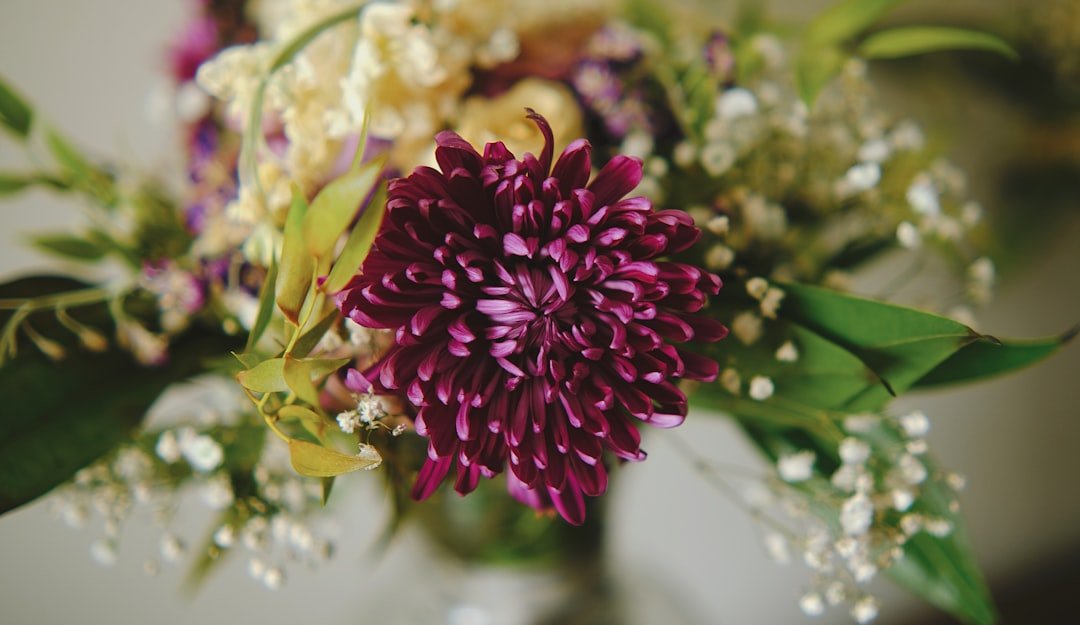
Flowers hold a special place in our hearts, serving as symbols of love, memory, and respect. In times of sorrow, they become a means through which we express our condolences and celebrate the lives of those who have departed. Understanding the significance of different floral varieties can help you choose the perfect tribute that reflects the personality and legacy of the loved one you’re honoring. In this post, we'll explore the common types of flowers used in funerals and their meanings, providing you with valuable insights for your next floral arrangement at Artisan Palace.
The Importance of Floral Tributes in Funerals
Flowers have long been associated with funerals, carrying emotional weight and messages that are sometimes difficult to articulate. Different blooms can convey unique messages, ranging from love and admiration to innocence and remembrance. They not only enhance the beauty of funeral ceremonies but also provide comfort to grieving family members and friends.
Why Choose Flowers for Funerals?
- Aesthetic Appeal: Flowers add natural beauty to solemn ceremonies, helping to uplift spirits.
- Symbolic Significance: They communicate feelings and sentiments that words often cannot express.
- Tradition: Many cultures have deep-rooted traditions involving the use of flowers during mourning.
- Personalization: Certain flowers can reflect the personality, life, or interests of the deceased.
Common Types of Flowers Used in Funerals
Let’s take a closer look at some of the most commonly used flowers for funerals and what they symbolize:
1. Roses
Roses are perhaps one of the most popular flowers, symbolizing love and respect. Different colors of roses carry different meanings:
- Red Roses: Love and passion
- White Roses: Purity and innocence
- Yellow Roses: Friendship and joy
White roses are particularly prevalent at funerals, as they signify purity and the spirit of a loved one being welcomed into Heaven.
2. Lilies
Lilies, with their elegant structure and enchanting fragrance, are another popular choice. The white lily, in particular, represents the soul of the deceased and the idea of purity and renewal. Other varieties, such as Easter lilies, carry messages of hope and resurrection, making them fitting tributes during difficult times.
3. Chrysanthemums
In many cultures, especially in Asia, chrysanthemums are seen as symbols of death and are often used in funeral arrangements. Their vibrant colors and varied forms serve as a beautiful tribute. In Western culture, they represent loyalty and devoted love.
4. Carnations
Carnations are favored for their long-lasting nature and variety of colors. Each color has its significance, with red representing admiration and pink symbolizing a love that endures beyond death. White carnations express innocence, making them a suitable floral tribute for a child.
5. Tulips
Tulips convey a sense of elegance and grace. Generally, they symbolize perfect love. Red tulips are particularly associated with love and passion, whereas white tulips are tied to forgiveness and rebirth. This duality makes them a thoughtful selection for funeral arrangements.
6. Orchids
Orchids are exotic flowers that convey a sense of beauty and strength. They symbolize love, beauty, and strength, which can serve as a comforting reminder of the lasting bond shared with the deceased. White orchids are particularly significant as they represent innocence, beauty, and elegance.
7. Hydrangeas
Hydrangeas bring a sense of abundance and grace. These flowers symbolize heartfelt emotion and can be a way to show compassion for the grieving family. Their lush blooms make them a popular choice for arrangements, wreaths, or as part of a larger floral display.
8. Daisies
Daisies represent innocence and purity. They are often a comforting choice at funerals for someone who had a joyful spirit. With their cheerful appearance, they can serve as a reminder of the good times shared with the departed.
Choosing the Right Flowers for Your Tribute
When selecting flowers for a funeral, consider the following factors:
Relationship to the Deceased
Your relationship with the departed should guide your choice. If the deceased was a close friend or family member, you may want to choose more personal flowers that hold special meaning.
Meaning of the Flowers
As mentioned, different flowers carry different meanings. Think about what you want to express through your floral arrangement. A specific flower may symbolize love, remembrance, hope, or innocence.
Personal Preferences
If you were aware of the deceased’s favorite flowers or colors, incorporating them can make your tribute more personalized and meaningful. This gesture demonstrates your awareness of their likes and pays homage to their unique personality.
Creating Flower Arrangements for Funerals
Creating a floral arrangement is not just about aesthetics; it involves thoughtfulness and care. Here are some tips for crafting a respectful and beautiful arrangement:
1. Consider the Recipient
Are you sending flowers to the family, or will you be presenting them at the funeral service? The arrangement style may vary depending on the context. For home displays, consider an arrangement that can easily fit on a table without being overpowering.
2. Choose Complementary Flowers
Mixing different flowers can create an elegant look. Try to use flowers that complement each other in color and meaning. For instance, pairing white lilies with deep red roses can create a visually striking and symbolically resonant tribute.
3. Add Greenery
Greenery can enhance the beauty of your arrangement while offering a backdrop for the blooms. Consider adding eucalyptus, fern, or ivy to give your arrangement depth and texture.
4. Customize with Ribbons or Accents
Using ribbon can add a personal touch to your arrangement. Consider tying the bouquet with a ribbon in the deceased’s favorite color or one that complements the florals selected.
5. Inspirational Quotes
Including an inspirational quote or message can add meaning to your floral tribute. Whether attached to the bouquet or written on a card, this personal touch can serve to comfort those who are grieving.
Staying Respectful with Your Choices
While personal preferences are essential in funeral flower arrangements, it’s crucial to remain sensitive to the grieving family’s wishes. Here are some considerations:
1. Cultural Sensitivity
Different cultures have unique funeral customs which include specific flowers. It would be wise to research or ask the family about any preferences or traditions to avoid inappropriate selections.
2. Limit Bright Colors
Though bright flowers like sunflowers can be joyful, they might not align with the somber tone of a funeral. Instead, opt for muted colors that convey respect and solemnity.
3. Avoid Overly Fragrant Flowers
While fragrance can enhance beauty, strong scents from certain flowers may become overwhelming in enclosed spaces. Choose blooms that have more subtle aromas to maintain a comfortable environment.
Wrapping It Up with Love
Understanding the common types of flowers used in funerals and their meanings can guide you towards selecting the perfect tribute for your loved ones. Whether you're crafting a bouquet yourself or choosing a pre-arranged display, remember the depth of emotion that flowers carry. They serve not just as a beautiful presentation but as a heartfelt expression of love, respect, and remembrance. The next time you're faced with the task of selecting funeral flowers, consider the sentiments behind each bloom, and let your choices be a reflection of the cherished memories you hold dear.
For all your floral needs, visit Artisan Palace to explore a variety of options that can help honor those who have departed. Embrace the beauty and symbolism of floral arrangements as you pay tribute to the lives we hold in our hearts.
Take a look at another user's Shopify store by clicking here. Please be aware that this is a promotional link, and we cannot be held responsible for the content of the linked store.
